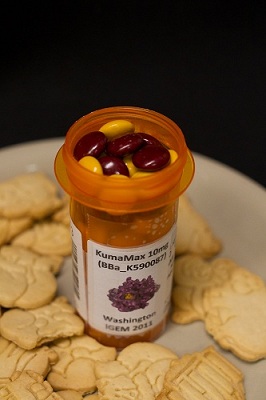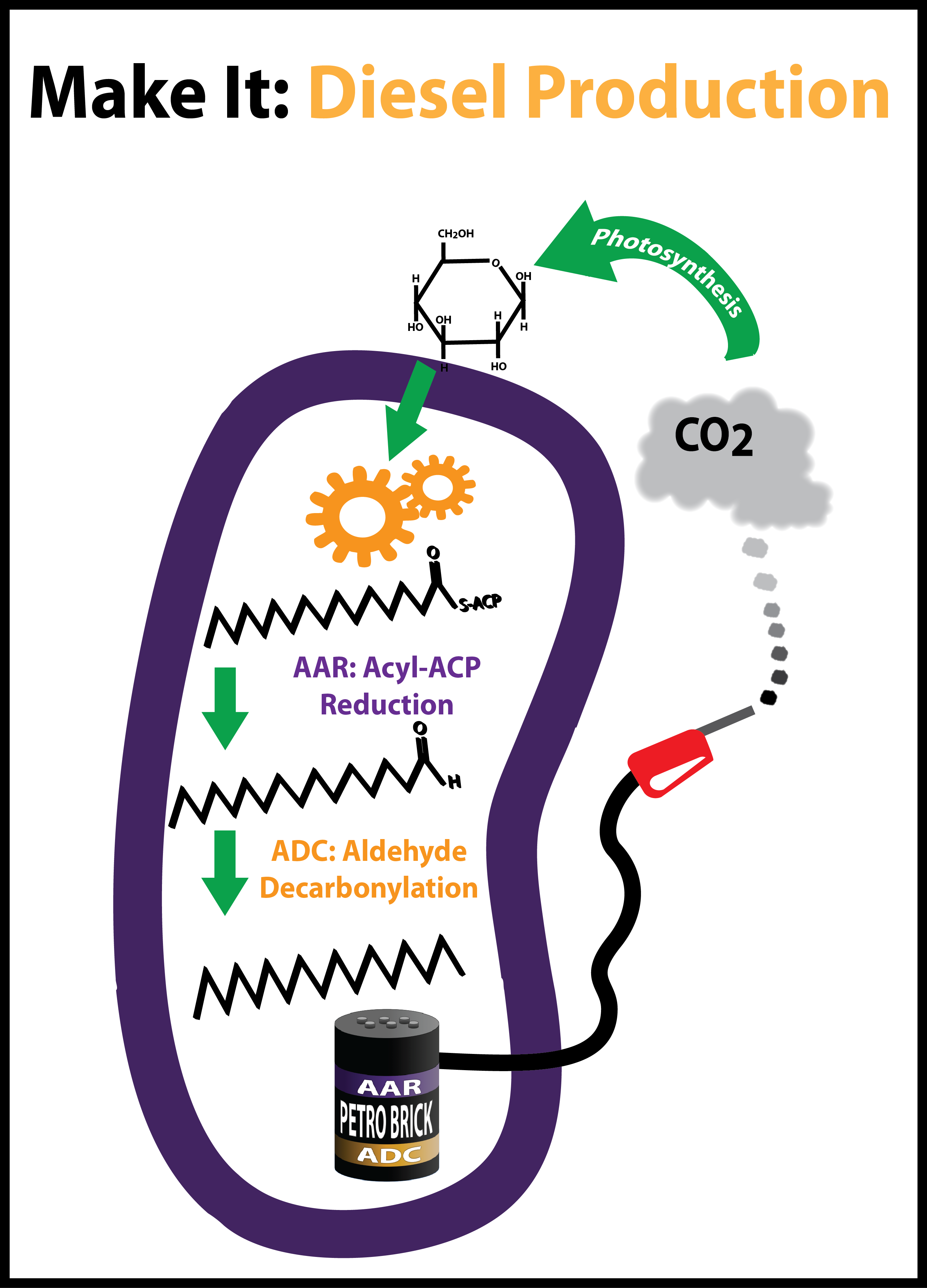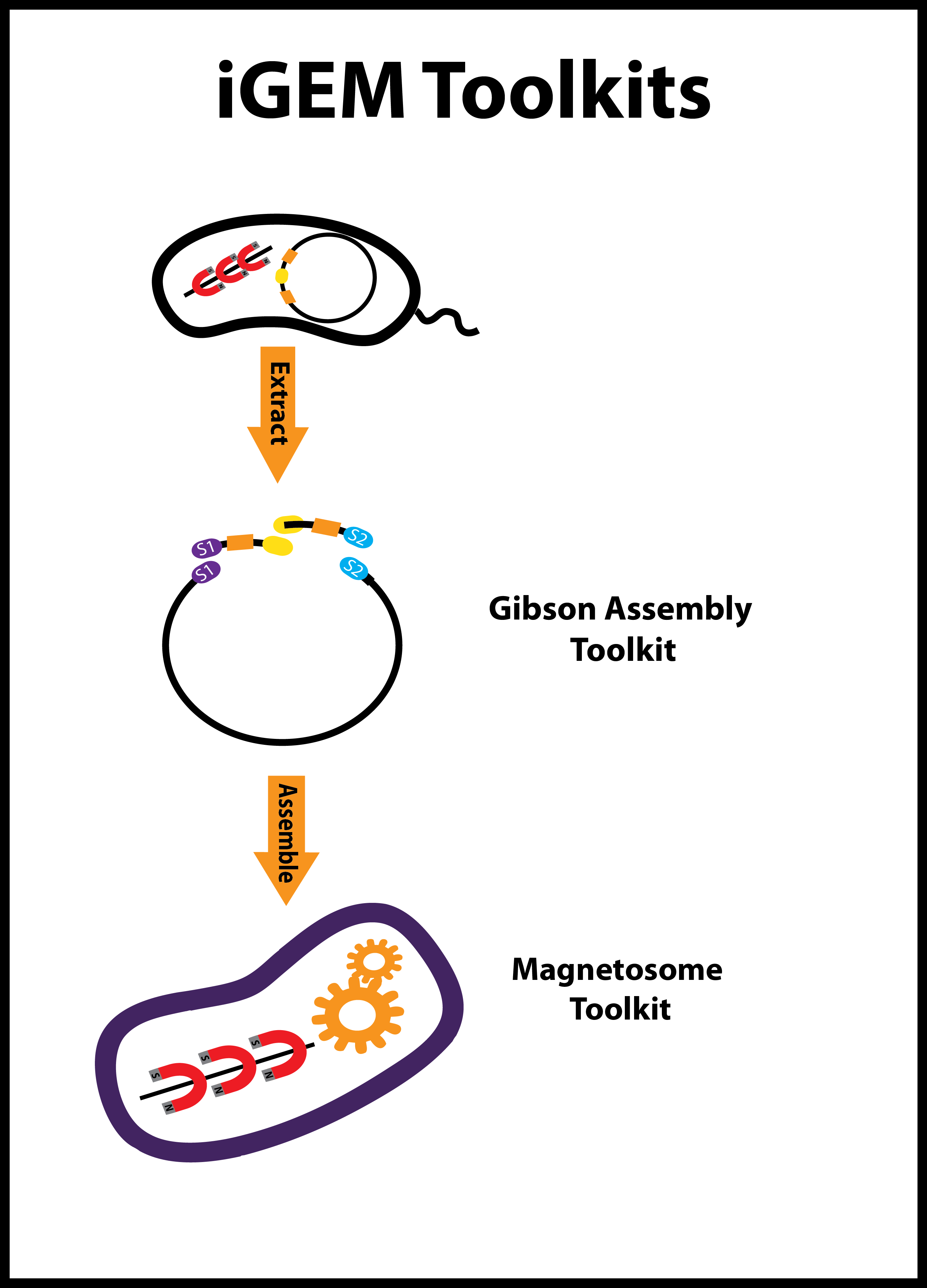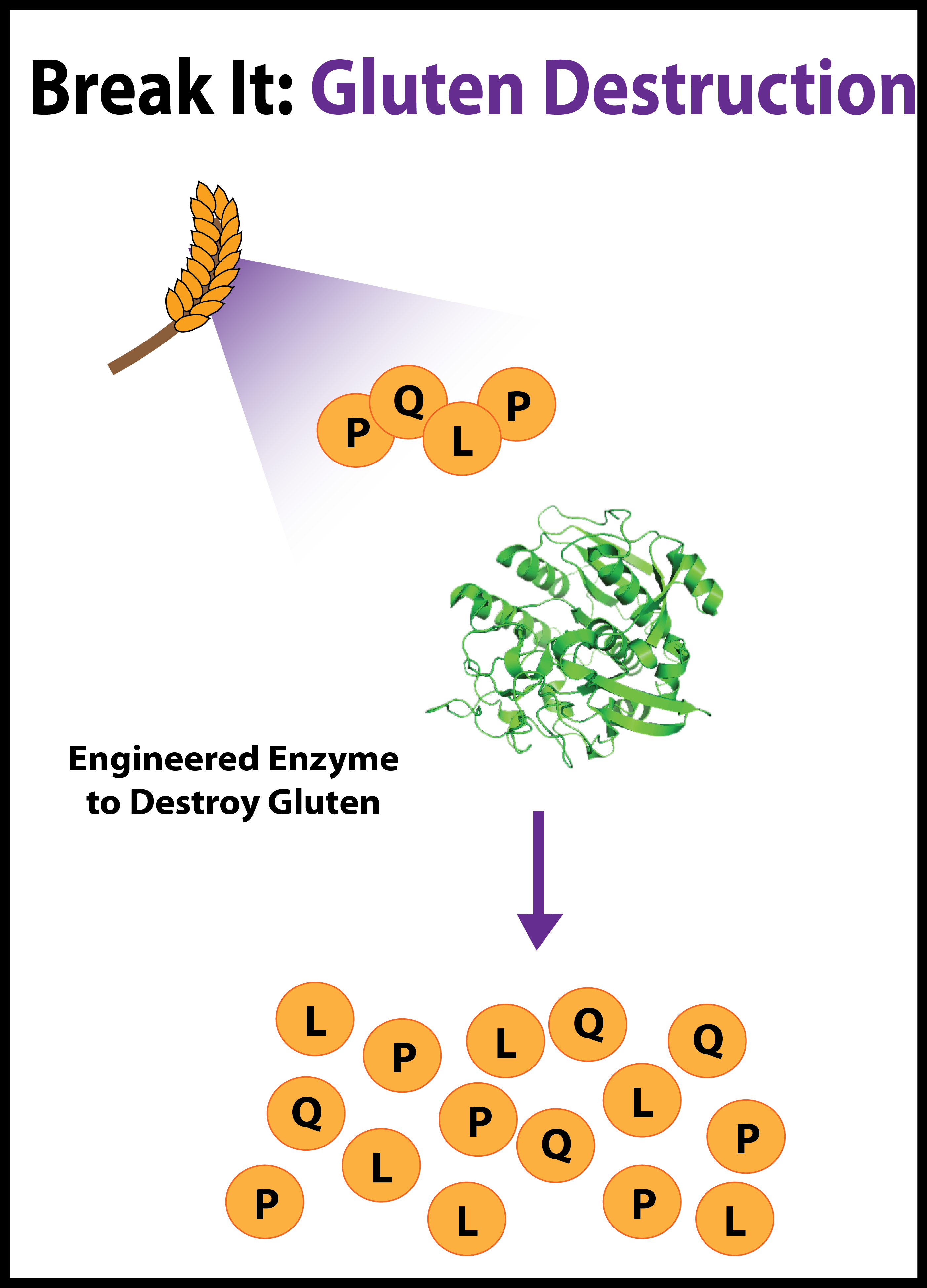Team:Washington
From 2011.igem.org
| Line 10: | Line 10: | ||
[[Image:Washington_Bottle.jpg|right|200px|borderless|link=https://2011.igem.org/Team:Washington/Celiacs/Background]] | [[Image:Washington_Bottle.jpg|right|200px|borderless|link=https://2011.igem.org/Team:Washington/Celiacs/Background]] | ||
| - | [https://2011.igem.org/Team:Washington/Alkanes/Background '''Make It: Diesel Production'''] We constructed a strain of ''Escherichia coli'' that produces a variety of alkanes, the main constituents of diesel fuel, by introducing a pair of genes recently shown convert fatty acid synthesis intermediates into alkanes. | + | [https://2011.igem.org/Team:Washington/Alkanes/Background '''Make It: Diesel Production'''] We constructed a strain of ''Escherichia coli'' that produces a variety of alkanes, the main constituents of diesel fuel, by introducing a pair of genes recently shown to convert fatty acid synthesis intermediates into alkanes. |
[https://2011.igem.org/Team:Washington/Celiacs/Background '''Break It: Gluten Destruction'''] We identified a protease with gluten-degradation potential, and then reengineered it to have greatly increased gluten-degrading activity, allowing for the breakdown of gluten in the digestive track when taken in pill form. | [https://2011.igem.org/Team:Washington/Celiacs/Background '''Break It: Gluten Destruction'''] We identified a protease with gluten-degradation potential, and then reengineered it to have greatly increased gluten-degrading activity, allowing for the breakdown of gluten in the digestive track when taken in pill form. | ||
Revision as of 22:43, 26 October 2011
Make It or Break It:
Diesel Production and Gluten Destruction, the Synthetic Biology Way
Diesel Production and Gluten Destruction, the Synthetic Biology Way
Make It: Diesel Production We constructed a strain of Escherichia coli that produces a variety of alkanes, the main constituents of diesel fuel, by introducing a pair of genes recently shown to convert fatty acid synthesis intermediates into alkanes.
Break It: Gluten Destruction We identified a protease with gluten-degradation potential, and then reengineered it to have greatly increased gluten-degrading activity, allowing for the breakdown of gluten in the digestive track when taken in pill form.
iGEM Toolkits To enable next-generation cloning of standard biological parts, we built BioBrick vectors optimized for Gibson assembly and used them to create the Magnetosome Toolkit: a set of 18 genes from an essential operon in magnetotactic bacteria which we are characterizing to create magnetic E. coli.
![]()

![]() University of Washington
University of Washington
![]() Anaspec
Anaspec
![]()
![]()
![]()
![]()
 "
"







